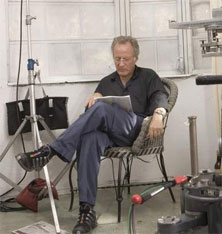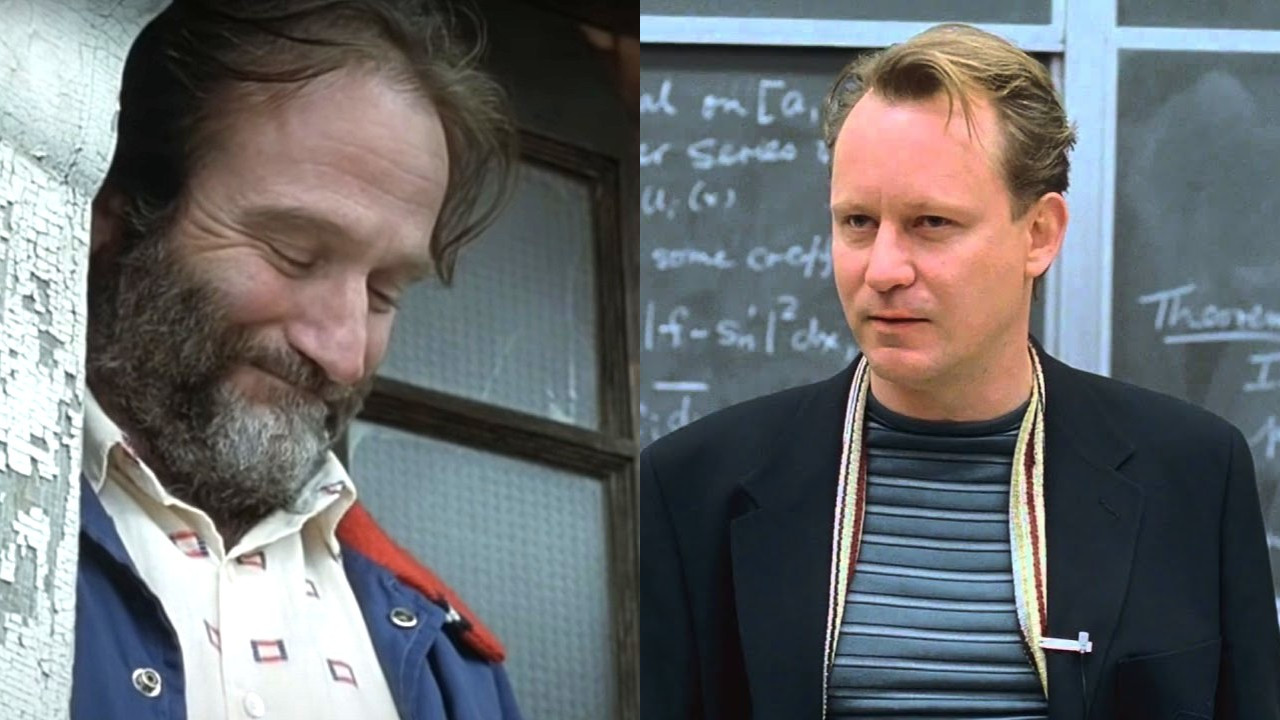Interview: Miami Vice Director Michael Mann

Your Daily Blend of Entertainment News
You are now subscribed
Your newsletter sign-up was successful
You can surround Michael Mann with all the A list movie stars in the world and they still can't steal the spotlight. In a group press conference with the cast of Miami Vice, Mann remained the center of attention. Considering he produced the original show and directed the new movie, he probably was the most connected to the project.
"First of all, it's all Jamie's fault because he talked me into this, starting in 2002, at Ali's birthday party," Mann began. "But, when the proposition became really exciting for myself, and then for all of us, was the idea of really getting into undercover work, and what it does to you, what you do to it, and the whole idea of living a fabricated identity that's actually just an extension of yourself, and doing it in 2006, doing it for real and doing it right now. If you think about it, that then defines a whole bunch of stuff. You're not going to have crocodiles or alligators, and you're not going to have sailboats. You're not going to have nostalgia. And, you're going to do it for real, as a big picture that's going to be R-rated because you do dangerous work in difficult places where bad things happen, you have relations with women, there's sexuality and there's language, and that became an exciting proposition. But, it started with the real function, for the actors, and myself as well, as what is undercover work, for real? What is that stuff? And then, all these folks went and did a lot of that work themselves."
The movie actually represents Mann's vision of the beginnings of the series, which ultimately got lost as the show went on. "If I took you through the first two years' episodes, which I consider to be the real core of Miami Vice, these are exactly the kind of stories that were being told. They were poignant, they were emotional, they weren't happy endings. So, there were these kind of stories. And then, there was some lighter stuff that would enter in, once in a while."
Updating Miami Vice also meant updating the music. If Miami Vice was going to be modern day, they couldn't have the same '80s soundtrack. "Music is always key to me, whether it's Miami Vice or not Miami Vice. It's dictated by the story, about what Crockett and Tubbs and Isabella and Trudy are doing. And, since the movie tries to get into the lives of these folks as intensely as possible, I wanted music that, hopefully, had the power to do that, consequently, the Mogwai and some of the Audioslave. So, that's what informed most of those choices."
Doing a hardcore Miami Vice meant doing it right, so the actors had to go practically undercover before they started filming. "Everybody went through training, and went through a lot of it. A lot of hard work went into it, and they look good because they are good, and they are good because they really can do everything that we see in the film, including all of the physical stuff. The most difficult thing to acquire is all the skills that I think these folks have, in terms of really being in an undercover situation. When they're confronted at Jose Yero's, and these guys have responses, and they accuse Yero of being the man hooked up with the DEA, or the street theater that they put down on Isabella in the house, when they pretend that they're bringing back the dope which we know they stole, and the skill and the self-confidence they have came from lots of scenarios that Colin and Jamie and Naomie and Gong Li did, with real folks who really do do this stuff. They did simulations that were very, very realistic, and they did it a lot. I'm real proud of their work, and the benefit of it is what you see on screen."
When the action breaks out, it's in grand Michael Mann style. "I don't story board. I do something else, which is I block it. We then train to the blocking. In other words, when everybody's training, they're actually training a lot of the moves that we are definitely going to use, and then, I do a lot of photography of that, and that becomes where the cameras go."
Still, even Michael Mann couldn't control the weather. "We knew we were going into a major hurricane season in Miami because we were shooting in the summer. All you have to do is go on the web and look up the U.S. Weather Bureau, and you find out the history of hurricanes in Miami keeps getting worse. So we knew it, we provided for it in production's deal with the studio what would happen, officially, on this picture if there was a tropical storm watch to tropical storm warning to hurricane watch to hurricane warning. So, we all knew this was common and we prepared for it, and we were a lot more fortunate, in our circumstances, to weather these hurricanes than a lot of the local folks were, and certainly everybody in New Orleans that got hit by Katrina. Our security precautions that we had prepared worked flawlessly. That's why a guy who was, in fact, a policeman was stopped by uniformed Dominican military, which was our outer-perimeter security. We take safety very, very seriously on every film I make, and that's why I've never had a serious accident or anybody killed, when I make a picture. Everybody had to leave in a very prescribed way. And then, I was not going to shoot in the Dominican Republic anymore because we didn't know what the backstory was. You have to think about these things. Does this guy have five brothers? Do they have a lot of animosity with the military that you don't know about, and now they're blaming Gong Li, or something? Who knows? So, you change the stuff you're doing. That's the process. The important thing is not the process. The important thing is the product."
Your Daily Blend of Entertainment News
Miami Vice opens Friday.
